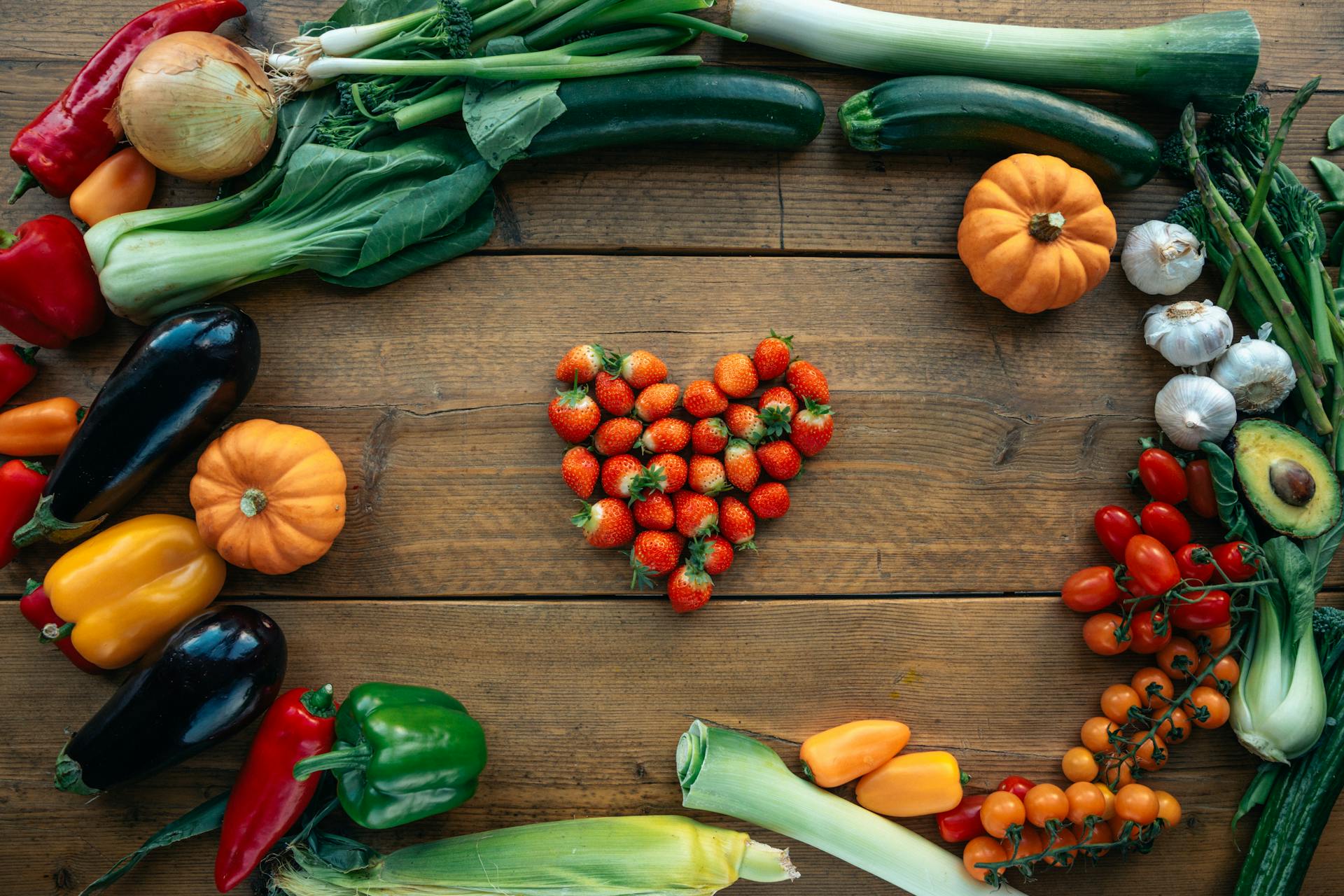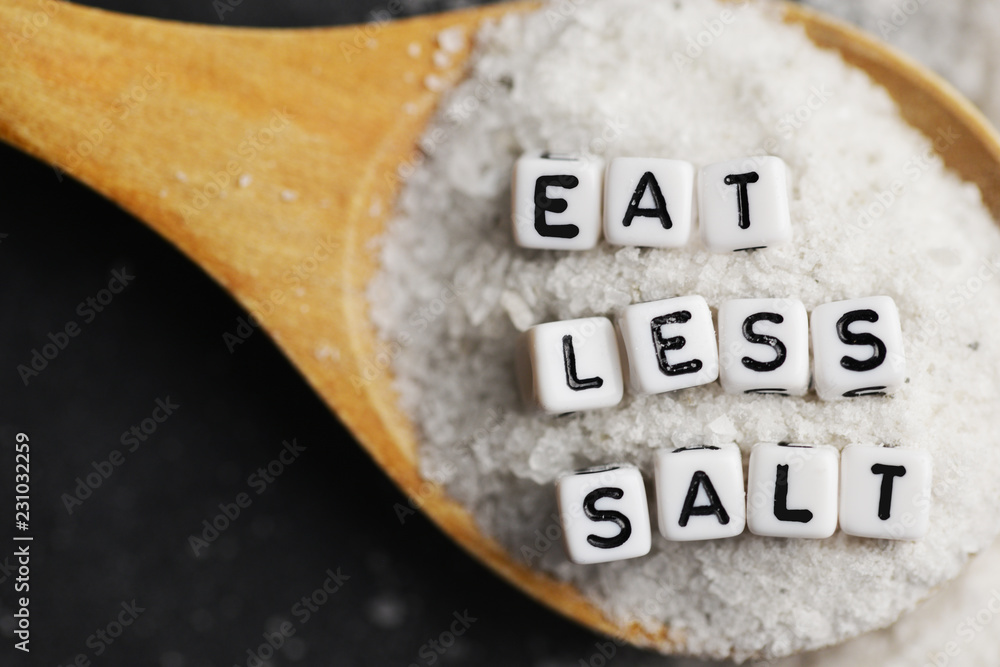High blood pressure, also known as hypertension, is a common health condition that affects millions of people worldwide. It occurs when the force of blood against your artery walls is consistently too high, which can increase your risk of heart disease, stroke, and other serious health issues. While medication can help manage blood pressure, many people are looking for natural remedies to support a healthy lifestyle.
In this article, we’ll discuss 7 effective home remedies for managing high blood pressure. These remedies are simple, easy to incorporate into your daily routine, and can work alongside your doctor-prescribed treatments. Let’s explore how you can naturally control your blood pressure and maintain a healthy heart.
Table of Contents
ToggleUnderstanding High Blood Pressure
Before diving into the remedies, it’s essential to understand what high blood pressure is and what causes it. Blood pressure is measured in millimeters of mercury (mm Hg) and is represented by two numbers:
- Systolic Pressure (Top Number): This measures the pressure in your arteries when your heart beats.
- Diastolic Pressure (Bottom Number): This measures the pressure in your arteries when your heart rests between beats.
What Are Normal Blood Pressure Levels?
- Normal: Less than 120/80 mm Hg
- Elevated: 120-129/less than 80 mm Hg
- Hypertension Stage 1: 130-139/80-89 mm Hg
- Hypertension Stage 2: 140 or higher/90 or higher mm Hg

Causes of High Blood Pressure
High blood pressure can develop over time due to various factors such as poor diet, lack of exercise, obesity, stress, and genetics. It’s often called a “silent killer” because it may not show symptoms until serious complications arise.
For more detailed information on blood pressure levels, visit the American Heart Association’s website.
1. Eat a Heart-Healthy Diet
One of the most effective ways to manage high blood pressure is through your diet. Eating foods that are rich in nutrients and low in sodium can help lower your blood pressure and improve your overall health.

Focus on These Foods:
- Fruits and Vegetables: Choose fresh, colorful options like apples, oranges, spinach, and broccoli, which are high in potassium and antioxidants.
- Whole Grains: Include oats, brown rice, quinoa, and whole-wheat bread, which provide fiber and support heart health.
- Lean Proteins: Opt for chicken, fish, and legumes. Fish like salmon and mackerel are particularly beneficial because they contain omega-3 fatty acids.
- Low-Fat Dairy: Choose low-fat yogurt and milk to reduce fat intake while getting enough calcium.
Limit These Foods:
- Processed and Packaged Foods: These often contain high levels of sodium, which can increase blood pressure.
- Red Meat and Full-Fat Dairy: These can contribute to high cholesterol, which is linked to hypertension.
- Sugary Foods and Drinks: High sugar intake can lead to weight gain, which is a risk factor for high blood pressure.
For more tips on eating a heart-healthy diet, check out this guide from the NHS on healthy eating for blood pressure.
2. Reduce Sodium (Salt) Intake
High sodium intake is strongly linked to high blood pressure. Excess salt in your diet can cause your body to retain water, which increases blood pressure and puts strain on your heart. Reducing sodium in your diet can have immediate benefits for your blood pressure.

Tips to Reduce Sodium:
- Cook at Home: Preparing your meals allows you to control the amount of salt you add.
- Read Food Labels: Choose low-sodium options when shopping for packaged or canned foods.
- Use Herbs and Spices: Instead of adding salt, use herbs and spices like garlic, basil, and rosemary to enhance the flavor of your meals.
- Avoid Fast Food: Many fast food items are high in sodium, so try to limit your intake of these foods.
For more information on how to reduce sodium in your diet, visit the Centers for Disease Control and Prevention (CDC) website.
3. Exercise Regularly
Regular physical activity is one of the best ways to lower high blood pressure. Exercise helps your heart become stronger, making it more efficient at pumping blood and reducing the force on your arteries.

Recommended Exercises:
- Cardiovascular Activities: Brisk walking, jogging, cycling, or swimming are great options.
- Strength Training: Lifting weights or using resistance bands can improve muscle strength and support heart health.
- Flexibility Exercises: Yoga and stretching can help reduce stress and lower blood pressure.
How Much Exercise Do You Need?
Aim for at least 30 minutes of moderate exercise most days of the week. You can break it down into smaller sessions if needed, such as three 10-minute walks throughout the day.
For exercise ideas and routines, visit NHS’s guide to physical activity for adults.
4. Manage Stress Levels
Chronic stress can contribute to high blood pressure. Finding ways to relax and manage stress can improve your mental and physical health. When you’re stressed, your body produces hormones that cause your heart to beat faster and your blood vessels to narrow, which can raise blood pressure temporarily.

Effective Stress Management Techniques:
- Deep Breathing Exercises: Practicing deep breathing for a few minutes can calm your nervous system and reduce stress.
- Meditation: Regular meditation helps clear your mind and bring a sense of peace and relaxation.
- Yoga and Tai Chi: These practices combine physical movement with mindfulness, helping to reduce stress and improve flexibility.
Practice Mindfulness:
Mindfulness involves focusing on the present moment without judgment. It can help reduce anxiety, improve mood, and lower blood pressure.
For more stress management techniques, visit Mind UK’s guide to managing stress.
5. Maintain a Healthy Weight
Being overweight or obese can increase your risk of high blood pressure. Losing even a small amount of weight—just 5-10% of your total body weight—can make a big difference in managing blood pressure.

Tips for Healthy Weight Management:
- Eat a Balanced Diet: Focus on portion control and include a variety of fruits, vegetables, whole grains, and lean proteins in your meals.
- Exercise Regularly: Combine aerobic activities with strength training to burn calories and build muscle.
- Avoid Fad Diets: Choose sustainable dietary changes that you can maintain in the long term.
If you need help creating a weight loss plan, consult with a dietitian or healthcare professional for personalized advice.
For more weight management tips, visit the British Heart Foundation’s website.
6. Limit Alcohol and Caffeine
While small amounts of alcohol can have a protective effect on the heart, excessive drinking can raise blood pressure. Similarly, caffeine, found in coffee, tea, and some soft drinks, can temporarily increase blood pressure in some people.
Recommendations:
- Alcohol: Limit alcohol consumption to no more than one drink per day for women and two drinks per day for men.
- Caffeine: Pay attention to how your body responds to caffeine. If you notice that your blood pressure spikes after consuming caffeine, consider cutting back.
Learn more about the effects of alcohol and caffeine on blood pressure here.
7. Use Herbal Remedies and Supplements
Certain herbal remedies and natural supplements can help support healthy blood pressure levels. While these should not replace medication, they can be a helpful addition to your lifestyle changes.
Popular Herbal Remedies for High Blood Pressure:
- Garlic: Known for its heart-healthy benefits, garlic can help relax blood vessels and reduce blood pressure.
- Hibiscus Tea: Drinking hibiscus tea may help lower systolic and diastolic blood pressure due to its antioxidant properties.
- Omega-3 Fatty Acids: Found in fish oil supplements, omega-3s can reduce inflammation and support heart health.
- Coenzyme Q10 (CoQ10): This antioxidant helps lower blood pressure by improving the function of blood vessels.
Tips for Using Herbal Remedies:
- Always consult with your doctor before taking any herbal supplements, especially if you are on medication.
- Choose high-quality supplements from reputable brands to ensure safety and effectiveness.
For more information on herbal remedies for blood pressure, visit WebMD’s guide to supplements for high blood pressure.
Lifestyle Tips for Maintaining Healthy Blood Pressure
In addition to the remedies mentioned above, making the following lifestyle changes can further support healthy blood pressure levels:
- Quit Smoking: Smoking damages blood vessels and raises blood pressure. Quitting smoking is one of the best things you can do for your heart health.
- Stay Hydrated: Drinking enough water helps maintain the balance of fluids in your body and supports healthy blood pressure.
- Get Enough Sleep: Aim for 7-9 hours of sleep each night to support overall health and reduce stress levels.
- Monitor Your Blood Pressure Regularly: Keep track of your blood pressure at home with a reliable monitor, and share the results with your doctor during check-ups.
For more guidance on maintaining healthy blood pressure, visit the World Health Organization’s (WHO) recommendations.
Final Thoughts: Take Control of Your Blood Pressure Naturally
High blood pressure is a serious health condition, but it can be managed effectively with the right combination of lifestyle changes and home remedies. By incorporating a heart-healthy diet, regular exercise, stress management techniques, and natural supplements, you can support your overall well-being and reduce the risk of complications.
Always consult with your healthcare provider before making significant changes to your diet, exercise routine, or supplement regimen. A holistic approach that combines medical treatment with these natural remedies can help you achieve better control over your blood pressure and improve your quality of life.
For more resources and support, visit the American Heart Association’s Hypertension Management Guide.
Take charge of your health today, and enjoy a happier, healthier heart!
FAQ: 7 Home Remedies for Managing High Blood Pressure
1. What are some effective home remedies for lowering high blood pressure?
There are several natural remedies you can use to help manage high blood pressure at home. These include eating a heart-healthy diet, reducing sodium intake, exercising regularly, managing stress, maintaining a healthy weight, limiting alcohol and caffeine, and using herbal remedies or supplements like garlic, hibiscus tea, and omega-3 fatty acids. While these remedies can support healthy blood pressure levels, they should be combined with regular monitoring and professional medical advice.
2. How does reducing sodium intake help control high blood pressure?
Reducing sodium intake is one of the most effective ways to lower blood pressure naturally. Sodium causes the body to retain water, which increases the volume of blood in your bloodstream and puts extra pressure on your arteries. By cutting down on sodium, you can reduce water retention and lower blood pressure. The American Heart Association recommends limiting sodium intake to no more than 2,300 mg per day, with an ideal limit of 1,500 mg per day for those with high blood pressure. Avoid processed foods, read food labels carefully, and use herbs and spices to flavor your meals instead of salt.
For more guidance on reducing sodium, visit the American Heart Association’s tips on managing salt intake.
3. Can regular exercise really lower blood pressure, and if so, what types of exercises are best?
Yes, regular exercise can significantly lower blood pressure by making your heart stronger and more efficient at pumping blood, which reduces the pressure on your arteries. Aerobic exercises like brisk walking, jogging, cycling, and swimming are especially effective for reducing blood pressure. Strength training, such as lifting weights or resistance band exercises, can also contribute to overall cardiovascular health. Aim for at least 30 minutes of moderate exercise most days of the week to see noticeable improvements. Start with small steps like a daily walk and gradually increase your activity level.
For exercise recommendations and ideas, visit NHS’s guide to exercise for adults.
4. What dietary changes should I make to manage high blood pressure naturally?
To manage high blood pressure naturally, focus on a diet that includes plenty of fruits, vegetables, whole grains, lean proteins, and healthy fats. Known as the DASH (Dietary Approaches to Stop Hypertension) diet, this eating plan emphasizes foods high in potassium, calcium, and magnesium while reducing sodium and unhealthy fats. Include foods like leafy greens, berries, oats, salmon, and low-fat dairy in your meals. Avoid processed and packaged foods, sugary snacks, and fried foods, as they can raise blood pressure and increase the risk of heart disease.
For more information on the DASH diet, check out the Mayo Clinic’s guide to heart-healthy eating.
5. How do herbal remedies like garlic and hibiscus tea lower blood pressure?
Herbal remedies like garlic and hibiscus tea have been shown to support healthy blood pressure levels:
- Garlic: Contains allicin, a compound that helps relax blood vessels and promote better blood flow. Studies suggest that garlic can lower both systolic and diastolic blood pressure levels.
Learn more about the benefits of garlic from WebMD. - Hibiscus Tea: Hibiscus has natural diuretic properties that help the body eliminate excess fluids, reducing blood pressure. It also contains antioxidants that protect blood vessels.
These herbs can be used as part of a daily routine, but it’s essential to consult with your healthcare provider, especially if you’re taking other medications, to avoid interactions.
6. How can stress management techniques like meditation and yoga help lower blood pressure?
Stress causes the body to release hormones like cortisol and adrenaline, which temporarily increase heart rate and blood pressure. Chronic stress can contribute to long-term high blood pressure. Stress management techniques such as meditation, deep breathing, yoga, and mindfulness practices help calm the nervous system, reduce cortisol levels, and promote relaxation. These practices also improve overall mental health and reduce anxiety, which can further support healthy blood pressure levels.
7. Is it safe to use herbal supplements for high blood pressure along with prescription medications?
While many herbal supplements are considered safe and can complement conventional treatments, they can sometimes interact with prescription medications. For example, herbs like garlic, hawthorn, and CoQ10 can interact with blood pressure medications, potentially leading to adverse effects. Always consult with your doctor before starting any herbal supplement, especially if you are currently taking medication for hypertension. Your healthcare provider can guide you on the right dosages and help avoid possible interactions.
For more information on herbal supplements and drug interactions, visit NCCIH’s guide to herb-drug interactions.
8. How much alcohol and caffeine is safe for people with high blood pressure?
If you have high blood pressure, it’s important to limit your alcohol and caffeine intake. For alcohol, the general recommendation is to limit consumption to no more than one drink per day for women and two drinks per day for men. Drinking more than this can raise blood pressure and weaken heart health.
When it comes to caffeine, sensitivity varies from person to person. Some people may experience a spike in blood pressure after consuming caffeine, while others may not. If you notice an increase in your blood pressure after drinking coffee, tea, or other caffeinated beverages, consider cutting back or switching to decaffeinated options.
9. How can maintaining a healthy weight help manage high blood pressure?
Being overweight puts extra strain on your heart and increases the pressure on your arteries, leading to higher blood pressure. Losing even a small amount of weight—around 5-10% of your total body weight—can lower blood pressure and reduce your risk of heart disease. Focus on eating a balanced diet, getting regular exercise, and avoiding unhealthy weight loss methods. A combination of aerobic activities, strength training, and mindful eating can help you achieve and maintain a healthy weight.
10. Can lifestyle changes alone help in managing high blood pressure, or is medication necessary?
Lifestyle changes can have a significant impact on managing high blood pressure, especially if you’re in the early stages or have mild hypertension. For some people, adopting a heart-healthy diet, exercising regularly, reducing sodium intake, managing stress, and maintaining a healthy weight can lower blood pressure enough to reduce or eliminate the need for medication. However, if your blood pressure is very high or you have other risk factors, medication may still be necessary.
It’s crucial to work with your healthcare provider to create a comprehensive treatment plan that includes both lifestyle modifications and medication if needed. Never stop taking prescribed medication without consulting your doctor, even if you’re making positive lifestyle changes.For more information on managing high blood pressure, visit the World Health Organization’s (WHO) recommendations.
